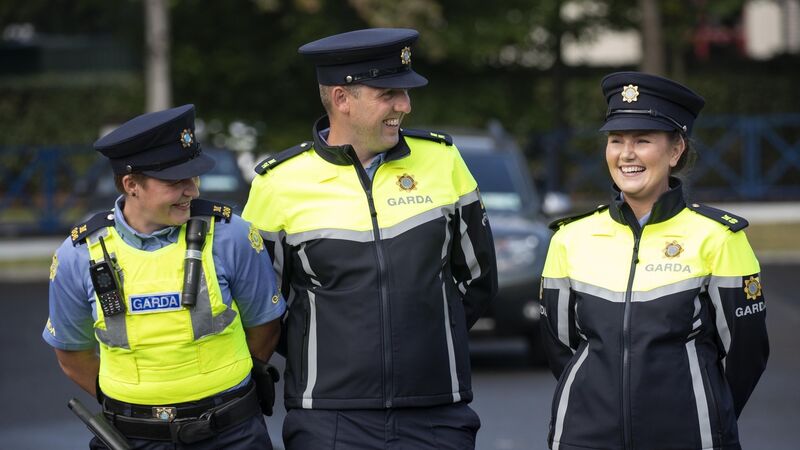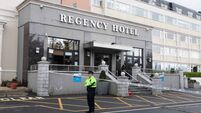'Immediate action' needed to resolve three-year cybercrime backlog

Gardaí Sophie McDowell, Luke Beattie, and Erin Heaney of Tallaght Garda Station wearing the new garda uniform which will be worn by more than 13,000 gardaí. It is only the third formal upgrade of the force's uniforms in a century. Picture Colin Keegan/Collins
“Immediate action” is needed to address the three-year Garda backlog in examining devices for child sex abuse imagery, and other crimes, according to the Policing Authority.
In a new report, the body said An Garda Síochána has “failed” to address the issue and warned that the continuing delay risks having a “considerable” impact on investigations and victims.
The authority suggests the Government “revisit” the planned increase of An Garda Síochána to 21,000 people — consisting of 15,000 gardaí, 4,000 civilian staff, and 2,000 reserves — given the greater demands on policing and the need to implement wide-scale reforms.
This view was echoed by Garda Commissioner Drew Harris, who said staffing targets set six years ago would not be adequate in the years ahead in combating antisocial behaviour, cybercrime, fraud, and organised crime gangs, and in protecting the security of the State.
Figures show the total Garda strength is currently 17,632, comprising 14,299 gardaí, 3,335 civilian staff, and 396 reserves.
The authority report documents critical staffing shortages not only in computer examinations, but also economic crime, Garda IT, the Garda crime reporting centre, and Garda analysis.
According to the report:
- Garda HQ estimates it needs an additional €200m in IT capital investment just to “catch up” with other police forces and organised crime groups;
- Lack of IT investment is creating “significant risks” in community policing, crime prevention and investigation management;
- The “critical” nature of the problem requires joint attention by gardaí and the Department of Justice;
- The authority is particularly concerned at the increasing difficulty in recruiting and retaining specialist staff, with some 60% of IT personnel currently external contractors.
The Policing Performance 2022 report, covering the first six months of the year, flags “enduring concern” at the continuing backlog in examining electronic devices and its impact on investigations, the identification of victims and the experience of victims in the justice system.
“The current three-year backlog is a critical weakness for the Garda Síochána that has the potential to have considerable impact not only on investigations but on individual victims and suspects,” the report states.
It says the increasing number of devices being sent for examination is a problem for all police services. It said that, despite reported improvements in productivity, the backlog remains.
“The authority is of the view that significant and immediate action is now required from a resources and planning perspective to meet the policing demands in this area.”
The report states: “As noted in relation to protective services, the Garda Síochána has failed to sufficiently address the backlog of electronic devices awaiting analysis and the demand that this places on capacity impacts on the wider ability to respond to cybercrime.
“Similarly, the scale of growth in economic crime is placing a demand on the organisation that cannot be met by the current allocated resources.”
It says the Garda Síochána Analysis Service has 30 vacancies out of an approved allocation of 74, with gardaí saying that none of the specialist bureaux or local units have enough analysts.
The authority praised the “considerable success” of gardaí in tackling organised crime groups.
It said collaboration with foreign agencies in combatting the likes of the Kinahan organised crime group represents “landmark success” for the organisation.
The report urges Garda HQ align this success with the reality on the ground in communities and “protect” those communities from drug crime and drug-related intimidation.
It said gardaí “must understand and respond to” antisocial behaviour and “quality-of-life” issues for communities.
The report says the force needs an internal strategic approach as to its engagement with young people.
It says frontline gardaí often report poor communication from Garda HQ and that the Strategic Transformation Office, which drives internal reform, is running at 50% capacity with only one member “working part-time” on implementing the health and wellbeing strategy for gardaí.













